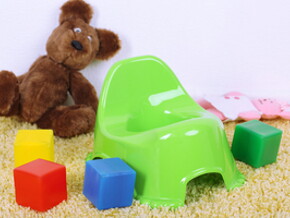
Ways To Help Toddlers Overcome Shyness
How Can I Help My Shy Child?
IMPORTANT NOTICE: The World Health Organization (WHO) recommends exclusive breastfeeding for the first 6 months and continued breastfeeding for as long as possible. Growing up milks are formulated to meet nutrition needs of healthy young children older than 1 year and should not be fed to infants.
Children are all born with different temperaments that tend to shape their outcomes and behaviors, since day one.
Some of them are lenient and outgoing, others are active and much more complex. Few are calm and slow to warm up; they react negatively or refuse to adapt to new experiences. Children of this category are shy by temperament.
If your bundle of joy belongs to this category and needs more time than his peers to adjust to new people, new places and new situations successfully, we advise you to ease his discomfort and help him overcome his fears by trying the following:
- Don’t label your kid as shy, so that your description won’t become a permanent characteristic of him.
- Don’t let anyone label your tot as shy.
- Don’t criticize your child or make fun of him when he acts shy, yet try to sympathize with him, understand him and support him.
- Encourage your toddler to talk about his fears and the reasons behind his shyness.
- Read your child books about children or characters who have overcome their shyness and fears.
- Teach your tot how to interact and communicate with others through puppet role play. Some timid kids don’t know how to behave in certain situations and need help.
- Encourage your tot to act spontaneously and praise him whenever he tries to openly deal with new persons or unfamiliar situations.
- Don’t pressure your kid to behave in a certain way when he’s uncomfortable.
- Plan for social gatherings and visits where your child can meet other familiar children. Timid kids feel less shy in familiar situations, which can be their step forward toward mingling with new children/ people and handling new situations.
Last but not least, model your child outgoing behavior when dealing with people and everyday situations and don’t forget to show him your love and support at all times. Children who feel loved and valued have usually healthy confidence and high self-esteem!
Read More: What Causes Childhood Shyness?




















